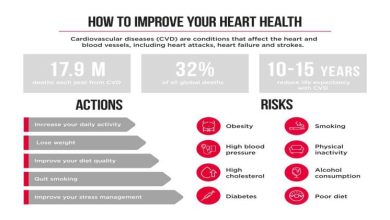Pap Smear Singapore: What Every Woman Deserves to Know

A Pap smear is a quick test to check the cervix for abnormal cells. During your Pap smear test in Singapore, you will lie on a bed with your feet in stirrups as a trained nurse or doctor gently inserts a speculum to open your vagina.
Then they use a soft brush to collect a few cells from your cervix. This sample goes to a lab for analysis where scientists will look at it for changes that could lead to cervical cancer.
They may also spot infections or other issues with the whole procedure only taking about five minutes. You might feel mild pressure, but it should not be painful.
When Should I get My First Pap Smear?
A Pap smear offers peace of mind as it can catch problems early when they are easiest to treat. If you’re yet to begin the exams you might wonder; when should I get my first Pap smear?
You should get your first Pap smear at age 21. After that until age 29, you can get repeat Pap tests every 3 years. You may want to consider HPV testing alone if you’re between 25 to 29. However, Pap tests are usually preferred.
Still on when to get your first Pap smear, if you are sexually active before 25, we’d recommend discussing testing with your doctor. They may suggest starting earlier based on your risk factors.
You should also get a test if you have symptoms like unusual bleeding or pain during sex. These signs can point to cervical or vaginal problems. Early testing means early treatment that can stop small issues from turning into something serious.
Please note that a normal result today does not guarantee the same next year. So, be sure to book your appointment even if you feel healthy so you’re best placed to track any changes over time.
When is the best Time to have a Pap Smear?
Another question we get quite frequently from those who are inquiring about Pap smear in Singapore is; what is the best time to have a Pap smear? To begin, please keep in mind that timing can affect how accurate your Pap smear results are.
The best time to have a Pap smear is generally when you are not on your period. So, you will want to aim for somewhere in the middle of your menstrual cycle, around 10 to 20 days after the first day of your period. This is when cervical cells are typically most normal, and the sample is less likely to be affected by menstrual blood.
Speaking on when your cervical cells are most normal, you will also want to avoid sexual intercourse, douching or using vaginal creams for 48 hours before your test. These activities can wash away or alter the cells you need for accurate results.
If you use tampons, switch to pads in the days leading up to the test. Also skip the test if you have heavy discharge or an active infection—you can reschedule once it clears.
Is It Painful to Get a Pap Smear?
A Pap smear can feel uncomfortable, but it should not be painful. When the speculum opens your vagina, you may feel pressure or a mild pinch.
This usually lasts only a few seconds while the sample is taken and many women describe it as an odd sensation rather than true pain. If you feel sharp pain, tell the nurse or doctor right away so they can adjust the speculum or use a smaller size.
To relax your pelvic muscles, try taking slow, deep breaths. Relaxed muscles make the test easier and more comfortable.
Afterward, you might feel light spotting or cramping which should clear up within a day. If bleeding or pain continues beyond 24 hours, please contact your clinic.
What Infections Can Be Detected in a Pap Smear?
A Pap smear in Singapore is one of the most important tests for you because it can spot more than cell changes. It may reveal common infections. Real quick, here are some of the main infections that can be detected in a Pap smear:
- Human papillomavirus (HPV): HPV is a virus linked to cervical cancer. If your sample shows high-risk HPV strains, your doctor will suggest a follow-up test called a colposcopy to take a closer look at your cervix under magnification. A negative HPV result means you can return to routine screening in a year or two.
- Bacterial vaginosis (BV): BV happens when “good” and “bad” bacteria in your vagina get out of balance. If your Pap smear picks up BV, your doctor will prescribe a short course of antibiotics or vaginal gels. Treating BV can ease discharge and itching. A negative result means no treatment is needed.
- Yeast infection (candida): Candida overgrowth causes itching, soreness and a white, cottage-cheese discharge. If your Pap smear sample shows candida, you’ll get antifungal creams or pessaries. These work quickly to restore healthy yeast levels. A negative result means your symptoms stem from another cause.
- Trichomonas vaginalis: This is a parasite that leads to greenish discharge and discomfort. A positive result means a single dose of antibiotics should clear it up. Your partner may also need treatment to prevent reinfection. A negative result means the test found no Trichomonas.
What are the Do’s and Don’ts of a Pap Smear?
To ensure a smooth and accurate Pap smear in Singapore you might also wonder; what are the do’s and don’ts of a Pap smear? You do not need to worry much about these as they will be explained during your consultation before the Pap smear in Singapore. Here’s what you need to know:
- Do track your menstrual cycle: A clear cervix sample gives the lab the best chance to spot cell or infection changes so, mark your calendar to avoid bleeding days. Testing in the second week of your cycle helps avoid heavy flow. If your period arrives, reschedule for a few days later.
- Do communicate your health history: Tell your nurse or doctor about past infections, surgeries or symptoms. This information will guide how they collect your sample and also help them decide if you need extra tests. Full disclosure ensures you get the right care.
- Don’t use vaginal products for 48 hours: Douches, creams, gels or spermicides can wash away or alter the cells you need and this makes the test less reliable. If you currently treat an infection, let your doctor know—testing may need to wait. Clear cell samples give you the clearest results.
- Don’t skip routine checks if you’re symptom-free: You can have cervical cell changes without noticing any signs. Here’s where regular Pap smears come in as they can catch these changes early. Early detection means simpler treatment and better outcomes. Treat your yearly test as an essential health habit.
In Summation
A Pap smear in Singapore is literally your best defence against cervical cancer and common infections. The test is quick, safe and vital for women’s health. So, keep up with regular checks—even if you feel well—to stay ahead of any changes.
We offer gentle, expert Pap smear services with clear guidance from start to finish. To take control of your cervical health, take a moment to book your appointment with us today. Details below;
The Artisan Health Clinic | Health Screening | STD Testing | HIV Testing Singapore
290 Orchard Rd, #07-01C Paragon Medical Suites, Singapore 238859
https://www.artisanhealthclinic.sg/
Phone: +65 8129 8877




